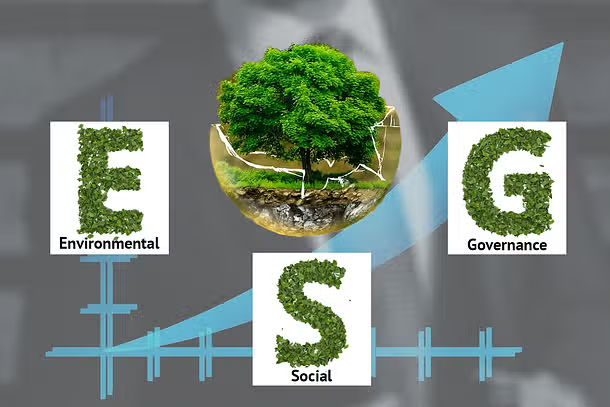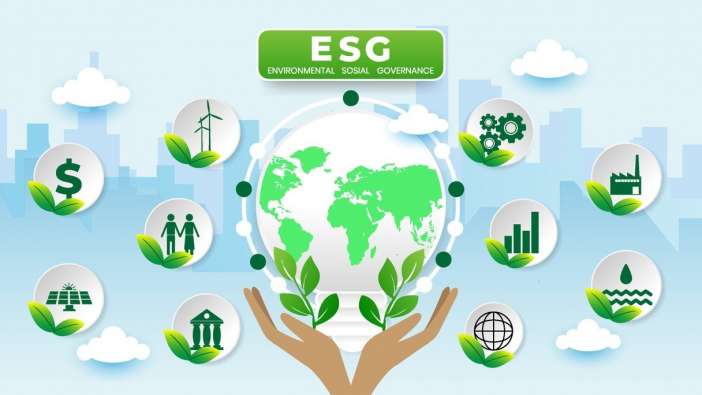Why ESG (Environmental, Social, Governance) Investing Is Trending in Bangladesh
Environmental, Social, and Governance (ESG) investing has become a global movement—and Bangladesh is catching up quickly. With increasing awareness about sustainability, ethical governance, and responsible corporate behavior, ESG is no longer just a corporate buzzword. It is a key metric for investors seeking long-term value and societal impact.
In Bangladesh, ESG investing is gaining momentum as international investors, development partners, and local conglomerates embrace a more responsible and resilient financial future. From green garments and inclusive hiring to transparency in governance, the ESG landscape is transforming how businesses operate—and how they attract capital.
In this article, we’ll explore:
-
What ESG investing is
-
Why it’s gaining popularity in Bangladesh
-
Key sectors driving ESG
-
Challenges and opportunities
-
How investors can align with ESG trends in the country
What Is ESG Investing?
ESG investing considers three pillars:
-
Environmental: Focuses on a company’s environmental impact—carbon footprint, energy usage, waste management, etc.
-
Social: Examines how a company treats employees, communities, and customers—labor standards, diversity, health and safety.
-
Governance: Evaluates corporate governance—board structure, executive pay, corruption policies, and shareholder rights.
Instead of just chasing profits, ESG investors seek sustainable, ethical, and impactful growth.
Why ESG Is Trending in Bangladesh
1. International Investor Expectations
Bangladesh has been attracting FDI across sectors like garments, pharmaceuticals, tech, and renewable energy. But international institutional investors increasingly prioritize sustainability disclosures before committing capital.
Organizations like the World Bank, IFC, and ADB now embed ESG criteria in their investments in Bangladesh.
🔗 Bangladesh-Agent.com helps connect global investors with ESG-compliant businesses in Bangladesh.
2. LDC Graduation and Global Market Access
As Bangladesh prepares to graduate from Least Developed Country (LDC) status by 2026, compliance with ESG standards will be critical for trade continuity, especially with the EU, UK, and North America.
Countries and trade blocs are linking market access with sustainable practices, especially in industries like ready-made garments (RMG), where environmental and labor practices are under scrutiny.
3. Rising Demand for Sustainable Products
Both local and international consumers are more conscious than ever. Products labeled eco-friendly, ethically made, or fair trade are driving purchase behavior.
This has encouraged companies to adopt sustainable sourcing, waste reduction, and socially inclusive hiring practices.
🔗 Learn how to source sustainable products from Bangladesh via Bangladesh-Agent.com.
Key Sectors Driving ESG in Bangladesh
🧵 1. Garments and Textiles
The RMG sector, contributing 80%+ of exports, is leading the ESG transition. Bangladesh has:
-
Over 170 Leadership in Energy and Environmental Design (LEED)-certified green garment factories (more than any other country).
-
Focused on improved labor compliance, safety protocols, and factory remediation post-Rana Plaza.
🔗 Learn more about the export-oriented garment sector in Bangladesh.
🌾 2. Agriculture and Agro-processing
Organic farming, sustainable aquaculture, and fair-trade practices are improving Bangladesh’s agri-exports. Certifications such as GlobalG.A.P. and Rainforest Alliance are becoming common.
⚡ 3. Renewable Energy
With power demand rising, Bangladesh is embracing solar, wind, and off-grid renewables. The government’s goal is to generate 10% of electricity from renewables by 2030.
Projects like the Mongla and Teknaf solar plants are ESG-aligned investment opportunities.
🏢 4. Banking and Financial Services
Bangladeshi banks, under the Bangladesh Bank’s Green Banking Guidelines, now finance projects aligned with environmental protection and inclusive growth. Social impact bonds and green bonds are also emerging.
The Governance Push
Corporate governance reforms have been central to ESG’s rise:
-
The Bangladesh Securities and Exchange Commission (BSEC) mandates listed companies to submit Corporate Governance Compliance Reports.
-
The Central Bank enforces credit risk assessments including ESG factors.
-
The Institute of Chartered Secretaries of Bangladesh (ICSB) promotes responsible corporate practices.
Good governance attracts global confidence. Investors now seek transparency, whistleblower mechanisms, and ethical boards—especially in public companies.
🔗 Bangladesh-Agent.com can help you verify company credentials before investing or sourcing.
Challenges to ESG Adoption in Bangladesh
Despite the positive trend, ESG investing in Bangladesh faces some roadblocks:
-
Lack of ESG data transparency in SMEs and non-listed companies
-
Low awareness among local business leaders
-
Greenwashing concerns, where companies exaggerate sustainability claims
-
Limited regulatory enforcement on social and governance standards
Yet, these challenges create opportunities for early movers to lead the ESG transformation.
Opportunities for Investors and Businesses
For Investors:
-
Target companies with strong green certifications, ethical hiring, and compliance records.
-
Use impact metrics and ESG scoring to evaluate opportunities.
-
Invest in funds or stocks aligned with ESG goals in Bangladesh.
For Local Businesses:
-
Improve ESG disclosure in financial reporting.
-
Get LEED, ISO 14001, or SA8000 certifications.
-
Adopt renewable energy, reduce carbon emissions, and ensure ethical labor practices.
🔗 Need help finding ESG-compliant suppliers or investment leads? Partner with Bangladesh-Agent.com.
Conclusion
The ESG wave is reshaping Bangladesh’s investment and business landscape. With growing investor scrutiny, consumer demand, and regulatory support, companies that prioritize ESG are better positioned for long-term success.
From green garments to governance reforms, Bangladesh’s ESG momentum is only going to grow. Whether you’re an investor, exporter, or buyer, aligning with ESG principles will help you stay ahead—and create positive impact.
🔗 Explore how Bangladesh-Agent.com supports responsible trade, sourcing, and investment in Bangladesh’s evolving ESG environment.

